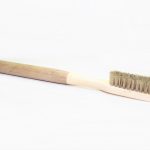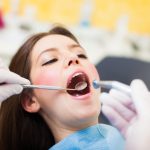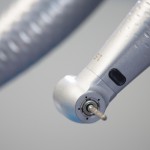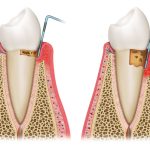Dr. Tony Gill Joins 123 Kerrisdale Dental Centre
October 04, 2016
by Jade Burnside
Comments are off
We are pleased to welcome Dr. Tony Gill to our practice.
Dr. Gill is very skilled and experienced with dental implants, extractions, and sedation. He brings a great passion for excellence and provides us with the ability to perform all of these procedures in house.
About Dr. Gill
 Dr. Gill has done much to assist in educating the public about dentistry, from being a featured guest on numerous radio and television talk shows to creating and hosting The Dental Show, a radio call-in program in Vancouver. He has been and continues to be an adviser, clinical tester and consultant for selected dental laboratories and dental materials companies. He is a technical adviser for dental office software.
Dr. Gill has done much to assist in educating the public about dentistry, from being a featured guest on numerous radio and television talk shows to creating and hosting The Dental Show, a radio call-in program in Vancouver. He has been and continues to be an adviser, clinical tester and consultant for selected dental laboratories and dental materials companies. He is a technical adviser for dental office software.
Dr. Gill has been performing difficult cosmetic and surgical cases since 1996, combining his expertise in orthodontics, restorative & cosmetic dentistry and implantology to create natural smiles. Dr. Gill has worked with 11 different Vancouver and Lower Mainland dental offices last year, performing extractions as well as placing implants, bone grafting and assisting dentists in learning about new implant and restoration techniques.
Dr. Gill has been working with implants since 1993 and has taken many lectures and hands-on courses on implants, surgery and bone grafting, travelling to the US and to Germany to study with Dr. Paul Weigl at the University of Frankfurt School of Dentistry.
How to Feel More Confident about Your Teeth
November 01, 2013
by Kerrisdale Dentist
Comments are off

Feeling confident about your teeth is important if you want to go through life happy. Your smile is one of the first aspects that people notice about you, so the condition of your teeth has a big impact on how you interact with the people around you. When you feel confident about your teeth, you are more likely to smile freely. Here are a few tips that can help you to feel more confident about your teeth.
Feeling More Confident about Your Teeth: Good Oral Hygiene
Caring for your teeth properly is a great way to encourage a feeling of confidence about them. With proper brushing and flossing, your teeth and gums will look and feel healthier. As a result, you’ll feel more like smiling and less like hiding your teeth behind your lips. Make sure that you use an antibacterial mouthwash to help keep germs and plaque from developing on your teeth. The better your oral hygiene routine is, the more confident about your teeth you will feel.
Feeling More Confident about Your Teeth: Regular Dental Visits
Making and keeping your biannual dental visits is a great way to begin feeling confident about your teeth. These visits are designed to identify existing problems, while also delivering preventative measures to help protect your teeth. After each visit, your confidence about your teeth will increase since you know that you have taken an important step to keep them looking great. Your mouth will feel cleaner, making you feel even more confident about your teeth.
Feeling More Confident about Your Teeth: Avoiding Foods and Beverages That Stain
Having whiter teeth is often associated with how confident an individual feels. While you can have your teeth professionally whitened to remove stains and discolourations caused by the natural aging process and a diet that dulls the whiteness of your teeth, avoiding teeth-staining foods and beverages on a daily basis is a good strategy to use as well. You can also use whitening toothpaste to brush your teeth and a whitening mouthwash before bed. After a few weeks, you should feel more confident about your teeth as they begin to look whiter and brighter.
How Do I Wear My Invisalign® Every Day?

Great smiles don’t come easy to everyone. Quite often, teeth need to be straightened or gaps need to be minimized to create the perfect smile. The Invisalign® process provides a user-friendly method to do so without being highly visible. Wearing Invisalign® daily allows you to improve the appearance of your teeth more quickly than using traditional braces, and it is less noticeable. If you are concerned that wearing Invisalign® daily can become problematic, don’t be. As long as you remember to follow your dentist’s instructions and a few tips, you should be able to enjoy wearing Invisalign® daily without any issues at all.
Wearing Invisalign® Daily without Problems: Proper Dental Care
If you want to continue wearing your Invisalign® daily without experiencing any problems, you need to take proper care of your teeth. You should continue brushing and flossing your teeth at least twice a day, removing your aligners to do so. Maintaining proper oral care is essential to prevent the growth of bacteria on your teeth and below the gum line.
Wearing Invisalign® Daily with Comfort: Cleaning Your Aligners
Since the aligners are easy to remove and place back on, you should have no problems at all keeping them clean. Just use the special Invisalign® cleaning kit or use a soft-bristled toothbrush and toothpaste to gently clean them. Rinse with water, and you’re finished. Wearing Invisalign® daily is easy when you keep them clean, because they feel great and don’t cause any type of painful infection.
Wearing Invisalign® Daily: Remove Your Aligners When Eating
Each time you get ready to eat, just remove your aligners before you do. This helps to keep them clean, while also allowing you to enjoy the foods that you love. As a result, you’ll enjoy wearing Invisalign® daily because you won’t experience any restrictions in your day-to-day activities.
Wearing Invisalign® Daily: Enjoy Life
Just because you are wearing Invisalign® aligners daily doesn’t mean that you can’t continue to do the activities that you love. You don’t need to do anything differently. If you play sports requiring a mouth guard, you can still wear one, just take off your aligner first and put it back on later.
The History of the Toothbrush
October 18, 2013
by Kerrisdale Dentist
Comments are off

The most commonly used tool to clean the teeth, the toothbrush has been around for centuries. While numerous individuals have delved into toothbrush history, a variety of theories exist as to when the first toothbrush was actually created. This is partly due to the fact that the definition of the first toothbrush is often includes items such as chew sticks and twigs.
Toothbrush History: What Did People Use before the Bristle Toothbrush Was Created?
People have been cleaning their teeth for many centuries. After all, plaque buildup can become annoyingly irritating. Our ancestors have been known to use each of the following as implements for teeth cleaning: feathers, twigs, porcupine quills, and animal bones. The Egyptians used powders made from eggshells and ox hooves to scrub their teeth. The Greeks used cloth, and the Romans favored sticks.
Toothbrush History: the 15 th Century
During the thirteenth century, the Chinese crafted handles from ivory or bamboo and attached animal hairs to them. Travelers to China would take these implements back with them to their own countries.
Toothbrush History: the 18 th Century
Researching into toothbrush history has to include a long look at an Englishman by the name of William Addis. This individual spent some time in jail for his involvement in a riot. During his incarceration, he created a bone handle with holes at one end of it. He inserted bristles from a boar into the holes, securing them with wire. Once he left prison, Addis began to mass produce his implement, making a fortune in the process.
Toothbrush History: the DuPont Company
By 1938, the DuPont Company had created its first toothbrush, using nylon fibers in place of the hairs from boars. It worked better than the version created by Addis.
Toothbrush History: the 1960s
The Squibb Company produced one of the initial electric toothbrushes in 1960. Other companies specializing in dental products soon followed suit. Electric toothbrushes move the bristles for you, oscillating back-and-forth to efficiently remove the plaque and food debris from your teeth.
Toothbrush History: the Future
It is clear that more developments might be added to the tale of toothbrush history as manufacturers continue to explore innovative options for children and adults alike. If you check the stores, you might discover that one of the newest versions includes a “talking toothbrush.”
What is the Root Cause of Tooth Decay?
October 11, 2013
by Kerrisdale Dentist
Comments are off

Tooth decay is caused by bacteria, which live on the surface of the teeth in the form of dental plaque. Certain foods, such as sugars and acids, can speed up tooth decay. Let’s take a look at the process of tooth decay in more detail to understand the factors that contribute to it.
Dental plaque is a soft film that forms on the surfaces of teeth. Plaque is composed of colonies of bacteria, which feed on sugars in the foods you eat and produce waste products that gradually wear through the teeth’s protective enamel coating. Holes in the enamel are known as dental cavities; they need to be filled as soon as possible to prevent the decay spreading through to the root of the tooth. Root decay is often painful and can mean that the tooth needs to be removed.
You can remove dental plaque by brushing your teeth thoroughly every day. However, plaque that is left in place hardens into tartar, which is harder to remove. Visit your dentist to have the tartar removed professionally in order to prevent tooth decay and gum disease.
Diet can play an important role in tooth decay. Acids can dissolve the enamel that protects the teeth and speed up the process of decay. Citrus fruits and tomatoes are quite acidic, but the most dangerous dietary sources of acid are soft drinks such as colas, which contain high levels of phosphoric and citric acids.
The bacteria that are the root cause of tooth decay consume sugar. Every time you eat sweets or drink sugary beverages you feed the bacteria that live in your mouth, which is why dentists recommend that you limit your consumption of these sugars. However, it is not only refined glucose that you need to consider: oral bacteria can also feed on fruit sugars, lactose in dairy products, and more complex carbohydrates which are broken down to simple sugars by enzymes in saliva. If you do eat something sugary or high in carbohydrates, clean your teeth soon afterwards to brush away the bacteria.
Cleaning your teeth regularly with fluoride toothpaste can help to fight against the root cause of tooth decay: the bacteria in your mouth. Because it is very difficult to completely eradicate dental plaque, you should also see your dentist regularly so that cavities can be filled and stubborn tartar removed.
Is It Possible to Have Teeth Problems Even with Proper Brushing and Flossing?
October 04, 2013
by Kerrisdale Dentist
Comments are off

Unfortunately, you don’t keep generating teeth throughout your entire life. Once you lose your baby teeth, the permanent set is all that you are going to get. Therefore, it is extremely important to incorporate an excellent oral care routine into your life to avoid teeth problems. Daily brushing and flossing is an essential aspect of this strategy, but are they enough to keep you from developing teeth problems?
Developing Teeth Problems: Acid Erosion
Even though you brush and floss your teeth every day, you can still develop problems with your teeth. Some of the foods and beverages you ingest create acid erosion on your teeth, wearing off the enamel through a process known as demineralization. As a result, your teeth lose their enamel, making them susceptible to damage. In fact, daily brushing creates an abrasive action that can strip away enamel that has been softened by acid erosion. Soda, fruits, juices, and wine fall into this category of acidic foods and beverages.
Teeth Problems: Fractured and Chipped Teeth
While brushing and flossing is great for keeping your teeth clean, it is still possible for you to have teeth problems. Whether or not your teeth have become weakened by acid erosion, you can still chip or crack a tooth. Eating foods that are extremely hard (jaw breakers, hard candies, ice cubes) can break a tooth. Once this happens, you need to go to the dentist to have it repaired as soon as possible. Waiting too long can allow tooth decay to set in. If you continue to wait, a bacterial infection can occur, giving you even more teeth problems to worry about.
Can You Have Teeth Problems Even with Proper Brushing and Flossing?
As you age, your teeth become more susceptible to damage. This is partly because of the damage that has accumulated over the years as well as partly because of the alignment of your teeth or fissures in your molars. Teeth that are crooked are more difficult to clean, so cavities can develop more easily. Deep crevices in the molars can hide food debris even though you brush regularly, possibly leading to teeth problems.
Can a Pacifier Cause Dental Problems?

Pacifier use has become an integral part of raising a child. Most parents use them during the first year, and some parents allow their children to continue sucking on a pacifier for several years. This is partly due to the fact that this is a difficult habit to break. While there are beneficial aspects attached to this practice, many people are beginning to wonder if pacifiers cause dental problems.
How Do Pacifiers Cause Dental Problems for Babies and Toddlers?
The constant sucking motion occurring during pacifier use presses it up against the teeth, pushing them out of proper alignment. In particular, the upper teeth are more likely to tip forward toward the upper lip when pacifiers begin to cause dental problems. The front teeth on the bottom begin to tilt in due to the pressure applied by the continual sucking of the pacifier. This is the most common way that pacifiers cause dental problems.
Unfortunately, it can also create changes in the shape and condition of the roof of the mouth. If a child uses a zealous sucking motion, pacifier use can cause dental problems arising from the mouth constantly being locked in one position. In severe cases, the upper and lower jaws can become severely misaligned, leading to bite issues and pain. The roof of the mouth might also become misshapen with a narrowing effect caused by constantly sucking on the pacifier.
At What Age Should Children Stop Using Pacifiers before It Causes Dental Problems?
Since pacifiers cause dental problems after the age of two, many pediatricians and pediatric dentists recommend that children stop doing so by the second birthday. Before the age of two, the damage created by pacifiers causing dental problems is easily remedied simply by eliminating access to the pacifier.
How Do Pacifiers Cause Dental Problems for Older Children?
If your child is still using a pacifier when the permanent teeth begin to emerge, bigger issues arise. Pacifiers cause dental problems that aren’t easily remedied in children age 4 and up. Stopping pacifier use at this age doesn’t promote the return to proper alignment, and your child will be faced with poor positioning of the teeth.
How Can I Overcome My Dental Phobia?
September 20, 2013
by Kerrisdale Dentist
Comments are off

If you have a fear of going to the dentist, you are certainly not alone. Quite a few people fear dental visits more than anything else. If you are one of the people who experience anxiety when you think about going to the dentist, you should discover how to overcome your dental phobia before it destroys your teeth.
Overcome Your Dental Phobia by Recognizing It Is Treatable
Just because you have a strong fear of going in for dentistry procedures doesn’t mean that you can’t overcome your dental phobia enough to allow you to go. You can do something about it by admitting it to someone else who can help you overcome your dental phobia. Seek this help by going to a caring provider who has the skills to address your emotional needs as well as your dental ones.
Overcome Your Dental Phobia by Choosing a Dentist Carefully
While the task before you is not an easy one, it is essential if you want to overcome your dental phobia in order to be able to visit a dentist on a regular basis. Choosing a dentist who specializes in treating patients with a strong fear of the dentist chair is not a straightforward task. While many dentists advertise that they cater to fearful patients, you need to speak with several until you find one who seems to understand how to help you overcome your dental phobia. Dentists who take the time to talk to you over the phone rather than going through their receptionist are more likely to take the time to help you overcome your dental phobia.
Overcome Your Dental Phobia: Set the Stage for an Easier Visit
Initially, you are still going to feel some anxiety. The trick is to keep it from reaching the point where it prevents you from actually making it to your appointment.
Follow these tips:
- Schedule an early morning appointment so you don’t have all day to worry about going.
- Wear comfortable clothes that make you feel good about how you look.
- Bring along your music device and headphones so you can keep yourself distracted while waiting for your turn.
Tongue and Lip Piercings and Oral Health: What Are the Side Effects?

It’s a popular trend lately to pierce your tongue or lips. Yet are there potential side effects? What are the consequences of oral piercings for your mouth? According to dental experts, there are health risks associated with lip and tongue piercings. The health risks may affect oral health as well as general health.
Risks for Teeth
Damage to teeth is a serious risk associated with piercings of the tongue and lips. First, lip and tongue jewelry can chip or crack teeth. They can also damage fillings. Furthermore, the piercings can affect eating. Oral jewelry, the mere presence of it, can lead to an increase in the mouth’s saliva production. The excess saliva can cause problems for both chewing and swallowing.
Gum Problems
The gums are at increased risk from oral piercings, too. Oral jewelry contains metal; this metal can cause the gums to recede away from a tooth or teeth. Biting down on a jewel may scratch or even cut the gums causing them to bleed and leaving them prone to infection.
Overall Health Risks
Oral piercings can cause other problems for health. Piercings can strike a nerve and lead to nerve damage. This nerve damage can lead to a numbed tongue—a quite common practice. Often this is a temporary problem; however, the nerves in the tongue can also be permanently damaged. This damage can prevent a person from moving their tongue and even tasting.
Oral piercings can also leave the body prone to infection, particularly since many types of bacteria are contained in the mouth. Piercing sites are especially prone to infection. More seriously, diseases like Hepatitis B and C have also been associated with piercing sites. Hepatitis, of course, can lead to serious complications.
From systematic infections to cracked tooth syndrome, oral piercings can lead to significant oral and general health problems. Both dentists and doctors have encountered these problems that have been documented in major medical publications in Canada and abroad. While trends come and go, some of these problems can be permanent. To ward away the risks, it’s safest to avoid piercing your lips and tongue.
Gum Disease – Everything You Need to Know

The majority of adults in the western world show some signs of gum disease, even if they’re only minor. Many of these people will have no idea about it, as mild gum disease is unlikely to cause discomfort and has few symptoms, but around one in ten people will develop more serious gum disease at some point in their lives, and the results of this can be far more damaging.
Gum disease, how it starts and what it becomes
Mild gum disease is more properly called gingivitis, and often goes unnoticed. The only symptoms normally experienced are swollen or reddened gums, which might bleed if they’re irritated when you brush your teeth. This stage of infection isn’t too much of a worry in itself.
However, if left untreated, the problem may well develop into more serious gum disease, a condition known as periodontitis. This is the point at which pain will appear, with bad breath and a constant unpleasant taste in the mouth also possible. If allowed to reach this point, the infection may even spread to the tissues that keep your teeth and gums firmly connected, causing gaps to appear beneath your teeth. This will make your teeth loose and there’s a chance of the gaps filling with pus. Your teeth may even fall out if you ignore the symptoms.
What are the risks of untreated gum disease?
There are several external risk factors that will greatly increase your chances of gum disease: smoking and diabetes will both put you at a higher risk, as will poor oral hygiene or an impaired immune system (perhaps as a result of taking certain prescription drugs). If you fall into any of these categories, it’s particularly important for you to keep an eye out for the symptoms of gum disease so that you can stop it in its tracks.
How is gum disease treated?
The treatment of gingivitis generally involves little more than regular and thorough brushing and flossing, and perhaps antiseptic mouthwash, although ideally this would be avoided as some mouthwashes will stain your teeth brown. Periodontitis can’t be treated from home and requires specialist care: one or more visits to the dentist will be necessary, so make absolutely sure that any gingivitis isn’t allowed to go unchecked.
What is the greatest cause of gum disease?
The prime cause of gum disease is dental plaque, a soft deposit on the teeth that most people will be familiar with. This plaque poses a threat because of the plethora of harmful bacteria it contains, which can lead to the infection and inflammation of the tissue in which the teeth are embedded.
Fortunately, this means that preventing gum disease shouldn’t be a difficult task. Brushing your teeth twice a day, for at least two minutes each time, is vitally important, and many dentists recommend using an electric toothbrush to get the best possible results. Flossing after brushing is also a good idea, as this cleans between your teeth far more effectively than brushing alone, and can help to prevent plaque from building up in the gaps.
Regular check-ups at the dentists are also advisable, so that they can let you know if you’re showing any warning signs and give you advice on what to do. You can’t go too far wrong if you follow this advice, and making oral hygiene a priority can save you from a lot of pain and discomfort in the future, both physical and as a result of the inevitable medical bills!
Recent Posts
Categories
Search
Book Your Checkup Today!

Quick Links
Contact Us
123 Kerrisdale Dental Centre
2899 West 41st Ave. Vancouver, BC
Email: info@kerrisdaledentist.com
Phone: 604 263 7355
2899 West 41st Ave. Vancouver, BC
Email: info@kerrisdaledentist.com
Phone: 604 263 7355
Our Hours
- Mon:-
- -
- -
- - Every Other Thursday 8:00 AM to 5:00 PM.
- -
- Closed
- Closed
123 Dentist Member
 At Kerrisdale Dental, we’re very proud and fortunate to be members of BC’s own 123 Dentist – Community Dentist Network.
At Kerrisdale Dental, we’re very proud and fortunate to be members of BC’s own 123 Dentist – Community Dentist Network.Click here to learn more about the 123 Dentist network
Copyright Kerrisdale Dental ©
